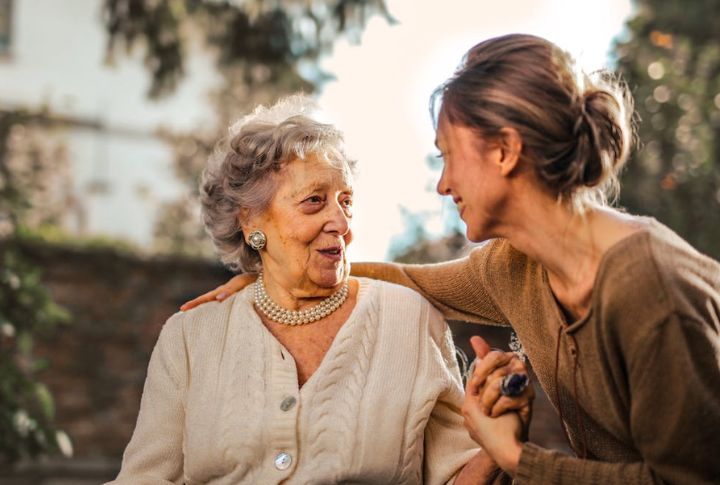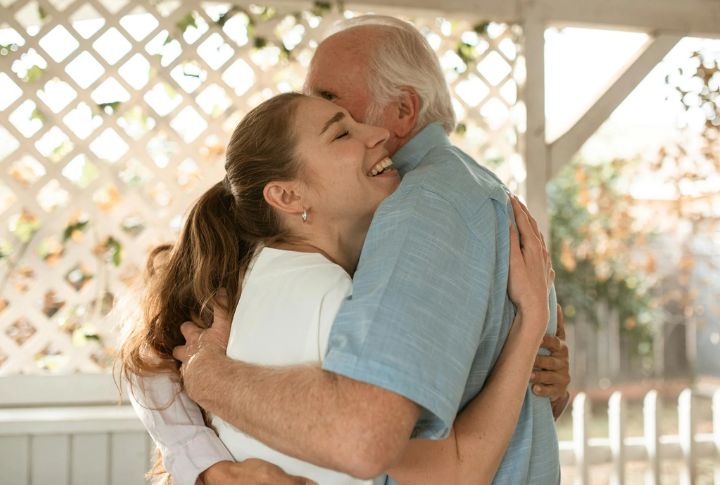
Oldest daughters often carry more than their birth order—they carry expectations and responsibilities that quietly shape how they move through the world. It starts young, with patterns settling in quietly before you realize how much they’ve shaped you. You might recognize the signs well before you finish reading.
You Take Care Of Everyone Else First

Before anyone asked, you were already helping—watching siblings, picking up chores, stepping in quietly. That early sense of duty didn’t fade. You still jump into support mode, sometimes without realizing it, since putting others first feels less like a choice and more like muscle memory.
You’re Extra Sensitive To Criticism

Feedback doesn’t land lightly when you’ve carried the weight of high expectations. You learned early that falling short had consequences, even in small ways. Now, even offhand remarks can linger. Instead of letting them go, you absorb them deeply and question if you’re doing enough.
You Have A Hard Time Relaxing

Although nothing is pressing, your mind keeps running. Tasks, reminders, and future problems hover in the background. Doing nothing can seem like stepping out of line for not being productive. Rest doesn’t come easily because your default mode keeps you on high alert.
You Feel Responsible For Everyone’s Emotions

Mood shifts in the room don’t go unnoticed. You pick them up fast and instinctively try to fix things. If someone seems upset, you wonder what part you played. You pick up on emotional tension quickly and instinctively step in to ease it, taking responsibility for emotions that were never yours.
You Plan For Every Outcome

Contingency planning gives you stability during times of uncertainty. That habit lingers—now, you over-prepare, rehearsing scenarios and calculating risks, even in simple decisions. The unknown feels like a trapdoor, so having a plan gives you breathing room.
You Parent Your Parents

When adults around you fell apart, you stepped in. Comforting them during stress, sorting out daily responsibilities, covering for forgotten tasks, and holding things together became second nature. Those early roles didn’t fade with age. Today, you may carry the role of managing the relationship with your parents.
You Often Feel Overlooked

You come across as steady, the one who doesn’t need checking in on. Support often skips over you, landing on those who speak up louder or stumble more visibly. This pattern began in childhood when doing well meant staying quiet and holding everything together without complaint.
You’re Independent To A Fault

You handle things solo, no matter how much it wears you down because relying on others remains unfamiliar and carries a sense of uncertainty. The habit took shape gradually, built through experiences that taught you that support wasn’t guaranteed and that asking rarely brought the help you needed.
You Have Trouble Setting Boundaries

Saying yes came with approval, and saying no felt like a failure. Over time, you got used to stretching yourself thin to meet everyone else’s needs. Standing your ground now feels strange, maybe even selfish, especially when you’ve built your role around being dependable.
You Feel Guilty Putting Yourself First

The choice to prioritize your needs sometimes brings guilt, shaped by past expectations of constant selflessness. Early lessons tied goodness to selflessness, and that belief runs deep. Taking a break or saying “not today” can leave you uneasy, as if you’re letting someone down just by existing differently.

